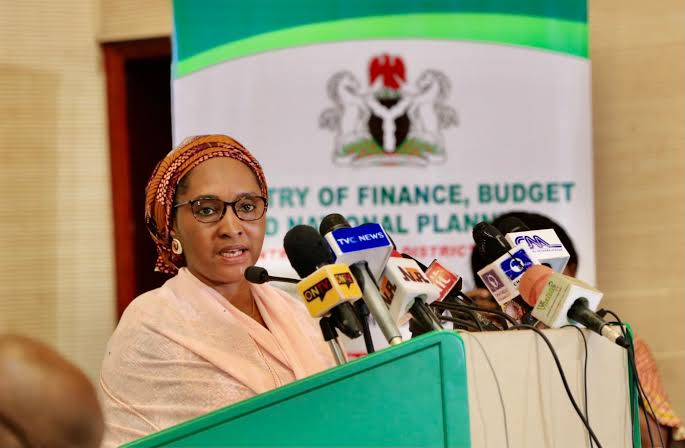•Report by Mudasir Opeyemi
The Federal Executive Council (FEC) has reviewed and approved the 2022 draft whistle blower bill to strengthen the fight against corruption and protect whistle blowers who provide information used by the government.
The Minister of Finance, Mrs Zainab Ahmed who disclosed this today after the FEC meeting chaired by the Vice President, Professor Yemi Osinbajo, also stated that the review became imperative because the Whistle blower policy response has lost momentum due to fears about safety.
According to her, safety concerns have been raised by citizens as a result of providing the information, an outcome which is the federal government is now acting upon through the upscaled bill.
Mrs Ahmed asserted that this conclusion was arrived at after an engagement across the six geo political zones.
Speaking on the initiative after the FEC meeting at the presidential villa, Abuja, Zainab Ahmed, said a draft bill was introduced to save the policy.
The council also ratified a new Finance Bill to support the implementation of the 2023 budget.
According to the Minister, the Finance bill would amend a number of Fiscal Laws including the Capital Gains Tax, Company Income Tax, Customs Excise Tariff Act, Federal Inland Revenue Service Act, Personal Income Tax, Stamp Duties Act.
Others include; Tertiary Education Tax, VAT Act, Insurance Act, Nigerian Police Trust Fund Act, National Agency for Engineering Act NASANI, Finance Control Management Act, as well as the Fiscal Responsibility.
READ ALSO:
- LASTMA Nabs Fake Traffic Official In Lekki,Recovers Uniform
- France To Battle World Cup History Makers Morocco To Take A Step Closer To Retaining Their Title
- For “Circumstances Beyond Control” Labour Party Postpones Campaigns In Ekiti, Ondo
“The Ministry of Finance, Budget and National Planning presented a number of memos today. The first is the draft whistleblower bill for 2022. This memo has been reviewed by council and approved with a provision to ensure alignment with the Evidence Act,”she said.
“The purpose of operationalising and putting in place a whistleblower bill is to strengthen the fight against corruption and to also enable protection for whistleblowers that provide information for use by government.
“As you know since 2016, the council had approved the setting up of the Presidential Initiatives of Continuous Audit (PICA). PICA has been working in partnership with EFCC, ICPC, DSS, NFIU as well as the office of the Attorney-General of the Federation.
“We noticed that the whistleblower policy response has lost momentum. We embarked on engagements in the six geo-political zones and one of the main outcome that we found is that people are concerned about their safety as a result of providing Information. So, this bill is critical to ensure the effectiveness of the retention of the whistle policy.”
“So with this approval from council, the president will be conveying to the National Assembly, a request for the consideration of this bill.
The policy, launched in December 2016, encourages Nigerians to disclose information on Fraud, bribery, looted government funds, financial misconduct and any other form of corruption to the ministry of finance.
The policy allows whistleblowers to earn 2.5% to 5% from the recovered funds by the Nigerian government.
The Minister disclosed that the council also approved the memo for the procurement of patrol boats for the Nigerian Customs Service.
“We got council’s approval for the design, construction and supply of nine numbers ballistic riverine assault boats, as well as nine numbers patrol boats with all associated accessories in favor of Messers Sewa West African limited in the sum of N689.7 million inclusive of 7.5 per cent VAT for the Nigerian Customs Service,’’ she said.


